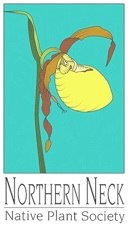The Chapter will have a presentation by Dr. Pam Grothe, a University of Mary Washington Assistant Professor in the Department of Earth and Environmental Sciences. Dr. Grothe received her Ph.D. from the Paleoclimatology Lab at the Earth and Atmospheric Sciences Department at Georgia Institute of Technology. Her current research involves a study of climate variability over the past 6000 years through the analysis of coral fossil records. Dr. Grothe’s presentation, entitled “A Christmas Tale Of Corals And Climate”, will concern research she conducted on Christmas Island.
Following the theme of last month’s presentation, the Chapter will have a related presentation on climate change and sea level rise. Our speaker, Dr. Grothe, is a paleo-climatologist whose research is focused on climate change in the ocean by studying geology and coral reefs. “The chemistry in their skeletons reflects the temperature and salinity of the ocean at the time the coral was living”, thereby providing us with clues as to the changing climate over thousands of years, said Dr. Grothe. A recent published estimate for “sea level rise is astonishing, which is about twice as high (6.6 feet by the end of this century) as what we previously thought. It would displace millions of more people living in low-lying coastal regions."
The program will also feature the Chapter’s Conservation and Horticulture Chair Betsy Washington’s introduction to the our now blooming beauty Seaside Goldenrod, Solidago sempervirens, the NNNPS native plant of the month for October.
We invite the public to attend and feel free to bring a brown bag lunch; some snacks and beverages will be available. We will have a social lunch and announcements for a short while before our featured presentation.
The Northern Neck Chapter of the Virginia Native Plant Society is one of 11 chapters in the state. It is a volunteer non-profit dedicated to the protection and preservation of the native plants of Virginia and their habitats, in order to sustain for generations to come the integrity of the Commonwealth’s rich natural heritage of ecosystems and biodiversity for purposes of enjoyment, enlightenment, sustainable use, and our own very survival.
